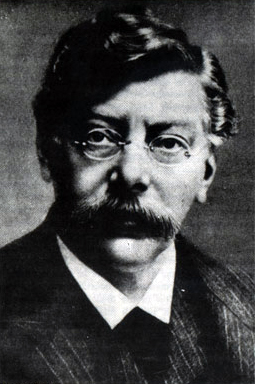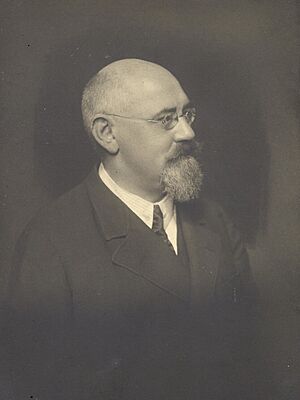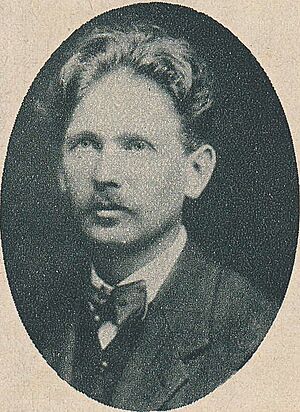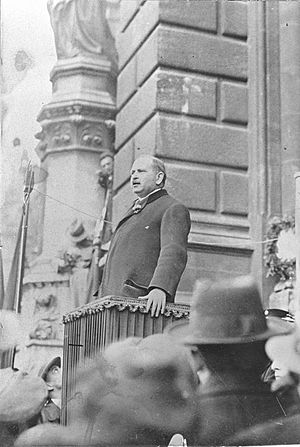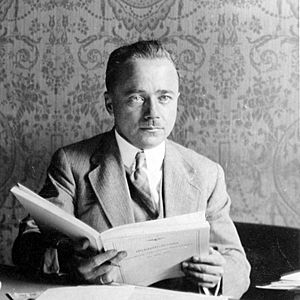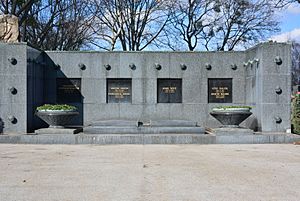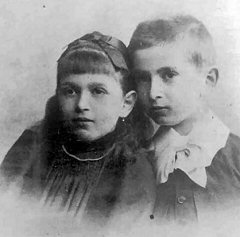Otto Bauer facts for kids
Quick facts for kids
Otto Bauer
|
|
|---|---|
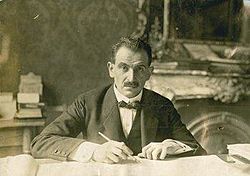 |
|
| Foreign Minister of Austria | |
| In office 21 November 1918 – 26 July 1919 |
|
| Chancellor | Karl Renner |
| Preceded by | Victor Adler |
| Succeeded by | Karl Renner |
| Personal details | |
| Born | 5 September 1881 Vienna, Austria-Hungary |
| Died | 4 July 1938 (aged 56) Paris, France |
| Political party | Social Democratic Workers' Party of Austria (SDAP) |
| Alma mater | University of Vienna |
Otto Bauer (born September 5, 1881 – died July 4, 1938) was a very important thinker and leader of a political group called the Austromarxists. This group tried to find a middle way between two ideas: social democracy (making society fairer through laws) and revolutionary socialism (changing society quickly through big actions).
Otto Bauer was a member of the Austrian Parliament from 1907 to 1934. He was also a top leader of the Social Democratic Workers' Party (SDAP) from 1918 to 1934. He even served as the Foreign Minister for the new country of Republic of German-Austria in 1918 and 1919. In this role, he tried to unite Austria with Germany, but it didn't happen. Some people criticized him for not letting his party join the government after 1920. They felt his choices might have helped Austria move away from democracy and towards fascism in the 1930s. When his party was banned in 1934, Bauer had to leave Austria. He continued to work for socialism from other countries until he died.
Contents
Early Life and Learning
Otto Bauer was born in Vienna, which was then part of Austria-Hungary. His father was a rich textile maker. Otto went to school in Vienna and other cities. He learned to speak German, English, French, and Russian.
After high school, he joined the army for a year in 1902. He became a reserve officer. Then, he studied law at the University of Vienna and earned his doctorate degree in 1906. He was also very interested in politics, so he studied history, languages, philosophy, economics, and sociology.
In 1900, Bauer became active in the Social Democratic Workers' Party. He helped start a school for workers in Vienna called Zukunft ('Future'). This school became the starting point for the Austromarxism movement. When he was only 26, he wrote a big book called Nationalitätenfrage und Sozialdemokratie ('The Nationality Question and Social Democracy'). In this book, he suggested ways to solve problems between different nationalities, which was a big issue in Austria-Hungary.
Political Journey
Before World War I (1907–1918)
Becoming a Member of Parliament
In 1907, for the first time, all men in Austria could vote. The Social Democratic Workers' Party (SDAP) won many seats in the Parliament. Otto Bauer was elected to Parliament that year. The party leader, Victor Adler, asked Bauer to be the secretary for the Social Democratic members. Before World War I, Bauer and the Social Democrats generally supported the government.
From 1907 to 1914, Bauer helped start and edit a Social Democratic magazine called Der Kampf ('The Struggle'). He also worked for the party's main newspaper, Arbeiter-Zeitung ('Workers' Newspaper'). He wrote about 4,000 articles and was known as a powerful speaker.
War Service and Being a Prisoner
In August 1914, when World War I began, Bauer joined the army as a reserve officer. He fought in battles and was even given an award for bravery. On November 23, 1914, he was captured by Russian soldiers and became a prisoner of war. He was sent to Siberia. Because he was an officer, he had some special treatment. He could read newspapers and didn't have to do hard physical work. He used this time to write about politics.
In September 1917, Bauer was able to return to Vienna. He was still in the army until October 1918, but he was allowed to work for the Arbeiter-Zeitung. His time as a prisoner, where he met Russian politicians called Mensheviks, made him a strong supporter of a certain type of Marxism. In Austria, his ideas put him on the left side of the Social Democratic Party.
Rising in the Party
During the war, people in Austria faced food shortages, and the Social Democratic Party's left wing became more important. After the party chairman, Victor Adler, died in November 1918, Otto Bauer, who was 37, became a key leader of the party's left wing.
To balance this, Karl Renner, a leader from the right side of the party, became the Chancellor (head of government) of the new state of German-Austria in October 1918. This new state declared itself a republic and part of the German Republic in November 1918.
After World War I (1918–1934)
Foreign Minister and German Union
On November 12, 1918, Otto Bauer became the Foreign Minister of German-Austria. In the election of February 1919, the Social Democratic Party won the most votes. They formed a government with another party, the Christian Social Party.
After the war, many people in Austria, especially Social Democrats, wanted Austria to unite with Germany. They felt that Austrians were culturally German and believed in the idea of national self-determination. Otto Bauer strongly supported this idea. He said that anyone against this union was a traitor.
Bauer even had secret talks with the German Foreign Minister in early 1919. However, the winning countries of World War I (the Allies) did not want Austria to unite with Germany. They made this clear in the peace treaty in May 1919. Because his plan for union failed, Bauer resigned as Foreign Minister in July 1919. Even so, he continued to believe in the idea of union until 1933, saying he wanted to unite with the German Republic, not with "Hitler's penal colony."
Early Party Work
From March to October 1919, Bauer worked on a commission that suggested ways to make private businesses more public. This led to the Works Councils Act, which gave workers more say in their workplaces. However, plans to make more businesses public stopped because the two parties in government disagreed.
Bauer and other leaders, like Julius Deutsch, helped keep workers loyal to the party. They stopped attempts by communists to take over the government in 1918 and 1919. This was also a time when workers could find jobs and get good wages, especially in "Red Vienna," where the Social Democratic mayor, Jakob Reumann, introduced many social benefits.
The Party in Opposition
Around 1920, the good economic times ended, and many people became poor because of high inflation. In the 1920 election, the Social Democratic Party lost its leading position. The Christian Socialists won more votes. Otto Bauer insisted that the Social Democratic Party leave the government coalition. This meant they would not be part of the federal government again until 1945.
Some, like Karl Renner, disagreed with Bauer's decision. Renner felt that Bauer's strong stance made it impossible for the Social Democrats to stay in the government without splitting the party. He believed this decision turned the new republic into a "purely bourgeois republic" (meaning, a republic mostly run by the middle and upper classes).
The Linz Program
In 1926, the Social Democratic Party created a new party plan, largely thanks to Otto Bauer. This plan, called the Linz Program, included ideas from Marxism and the concept of class conflict. It set out the party's goals for dealing with the Christian Social Party and a right-wing group called the Heimwehr, which were becoming more like clerical-fascists.
The program said that rich people still had too much power. It suggested that working with them should only be temporary, because the differences between social classes were too big. The program aimed to use democracy to take over big businesses and large land areas, making them "common property of the whole people."
Bauer's strong words about revolution worried opponents, who used them to warn people about Bolshevism (a type of communism). Even though Bauer tried to distance himself from the extreme actions of the Bolsheviks, he hoped that if "Russian Bolshevism should succeed... then the idea of socialism would gain irresistible appeal."
However, the Social Democratic Party's actions, especially in "Red Vienna," were focused on democratic reforms. Bruno Kreisky, who later became Chancellor, said that the phrase "dictatorship of the proletariat" (a Marxist idea) in the program was a "terrible verbal mistake" that harmed the party.
Fall of Austrian Democracy
Bauer, with the agreement of other leaders, turned down offers to join the government in 1931 and 1932. Many later saw this as a big mistake. Bruno Kreisky believed it was "the last chance to save Austrian democracy."
On March 4, 1933, Bauer and other leaders advised Karl Renner to resign from his role as president of the Parliament. After other leaders also resigned, Chancellor Engelbert Dollfuss declared that Parliament was shut down. Even though party rules said a general strike should happen if Parliament was stopped, no strike took place.
Bauer waited too long to act. By the time he decided to do something, the government already knew the plans of the Republikanischer Schutzbund ('Republican Protection League'), which was the Social Democratic Party's armed group. In February 1934, a former general warned Bauer not to fight the government, saying the Schutzbund would surely lose.
Living in Exile (1934–1938)
In Brno
In February 1934, fighting broke out between government forces and the Schutzbund. This was called the February Uprising. The socialists lost, and the Social Democratic Party was banned. Bauer and other leaders fled to Czechoslovakia. In the city of Brno, Bauer said he would no longer lead the party but would continue to advise, write, and manage party funds.
He helped the underground Social Democratic movement. His work led to the creation of the Revolutionary Socialists of Austria in 1935, which was a secret party that continued the Social Democratic ideas.
In Brussels and Paris
In 1938, when Nazi Germany took over Austria (this was called the Anschluss), Bauer moved to Brussels. His foreign office joined with the Revolutionary Socialists to form the Foreign Mission of the Austrian Socialists (AVOES). Bauer was a key member and editor of their newspaper, Der sozialistische Kampf ('The Socialist Struggle').
Bauer always admired Germany as a place of "spirit and progress." In his last writings, he again supported a German revolution that would include Austria. He believed that a socialist revolution in Austria alone was not possible.
Otto Bauer died of a heart attack in Paris on July 5, 1938, at age 56. He was buried in the Père Lachaise Cemetery. In 1948, his ashes were brought back to Vienna and reburied in an honorary grave at the Vienna Central Cemetery next to other important leaders.
Political Ideas
Main Ideas
Otto Bauer's ideas combined careful analysis, Marxism, and other influences of his time:
- He believed in a German nationalism that focused on culture and ideals. This influenced his ideas about nationalities and his desire for Austria to unite with Germany in 1919.
- He was careful about money and didn't like plans to create jobs during the Great Depression.
- He believed that "objective conditions" (the way things really were in society) greatly shaped what politicians could do. This led him to a "wait and see" approach, where he felt the party should wait for the right historical moment to act.
Bauer often analyzed political situations, like predicting that the world was between two world wars in the late 1930s. However, his analyses didn't always come with clear plans for what to do.
Idea of Revolution
Otto Bauer's idea of revolution was more about gradual change than sudden, big events. In 1928, he wrote that "small revolutions" that are barely noticeable are what truly change the world, building up force until a big change happens.
However, using the word "revolution" in the Linz Program caused problems. Opponents used it to warn people, making them fear radical changes.
Why the Party Waited
Bauer believed that the conditions for a revolution would naturally become ready over time, especially given the difficult economic situation in Austria in the 1920s. He thought that waiting was a smart "revolutionary pause." He felt that if the party joined governments with other parties, it would only delay the collapse of capitalism.
Bauer was waiting for his party to win an absolute majority of votes in the country. He was sure this would happen. He believed that the achievements of "Red Vienna" would be a starting point for moving towards a socialist economy that would be hard to reverse.
His ideas kept the left side of the party in line for a long time. But after March 1933, when the Nazi Party gained power in Germany, some in his party criticized him for hesitating to fight against the rise of fascism.
Integral Socialism
On a global level, Bauer tried to keep alive the idea that socialism would win, following the rules of historical materialism. He had an idea called "integral socialism," which aimed to reunite the Bolsheviks (communists) and the reformist social democrats. However, this idea never became a reality.
He helped start the International Working Union of Socialist Parties to bring together different socialist groups. This project, which aimed to make communists more democratic and social democrats less focused on just reforms, ultimately failed.
What People Thought of Otto Bauer
Opponents' Views
As a main thinker of Austromarxism, Otto Bauer shaped his party's 1926 Linz Program. This program, especially a part about the "dictatorship of the proletariat," made conservatives and German nationalists warn against "Austrobolshevism" (a mix of Austrian and Bolshevik ideas). Opponents also criticized Bauer for fleeing Austria during the February 1934 uprising.
Colleagues' Views
Joseph Buttinger, a fellow politician, wrote that Bauer believed that what was real and had happened was inevitable and necessary. This could lead to the idea that even non-revolutionary actions, if they fit the "circumstances," could help socialism win.
Wilhelm Ellenbogen, another Social Democratic politician, said that Bauer was a brilliant thinker and speaker, but he lacked the "instinctive accuracy in political judgment" that a true political genius has.
In October 1933, a group within the Social Democratic Party strongly criticized Bauer's policy. They said that the party leadership had been waiting too long and letting the enemy decide when to act. They felt this was wrong, especially against a "creeping fascism" that was slowly taking over.
Later Influence
Bauer's ideas continued to influence the Revolutionary Socialists, who worked secretly from 1934 to 1938. After 1938, his ideas were also seen in the Foreign Mission of the Austrian Socialists.
However, when the Social Democratic Party of Austria (SPÖ) was re-established in 1945, it followed the ideas of Karl Renner, who had different views from Bauer. While Bauer's Marxism was still formally recognized, its real influence quickly faded. Most Social Democrats wanted to avoid words used by Communists.
The social philosopher Norbert Leser believed that Bauer's death in 1938 prevented a difficult argument about the party's direction after the war. He said that Bauer became a "dead icon" who was honored but not truly followed in daily party life.
Bruno Kreisky, a later Chancellor, honored Otto Bauer by publishing his works. Kreisky still considered Bauer one of the great men he had met, despite some of his "misjudgments."
Bauer's Austromarxism was unique because it tried to find a middle path between the Bolsheviks and the reformist Social Democrats. The goal was to make the Soviet Union more democratic and reunite all socialist groups. However, this hope proved to be unrealistic, especially during the Cold War.
Tributes
From 1914 until he fled in 1934, Otto Bauer lived in an apartment building in Vienna. In 1949, a street near his former home was renamed Otto-Bauer-Gasse in his honor.
Family Life
Otto Bauer's son, Martin (born 1919), became a successful animator and film producer in Austria. He made many famous TV commercials in the 1950s and 1960s.
Otto's sister, Ida Bauer (1882–1945), was a patient of the famous psychologist Sigmund Freud. Freud wrote a well-known case study about her, using the name "Dora." Ida's great-granddaughter, Katharina Adler, wrote a novel about her in 2018.
Otto Bauer's nephew, Kurt Adler, became a conductor for orchestras.
Main Books
- Social Democracy and the Nationalities Question (1907)
- The World Revolution (1919)
- The Road to Socialism (1919)
- Bolshevism or Social Democracy? (1920)
- The New Course of Soviet Russia (1921)
- The Austrian Revolution (1923)
- Fascism (1936)
- The Crisis of Democracy (1936)
- Between Two World Wars? (1936)
See also
 In Spanish: Otto Bauer para niños
In Spanish: Otto Bauer para niños
 | Selma Burke |
 | Pauline Powell Burns |
 | Frederick J. Brown |
 | Robert Blackburn |


